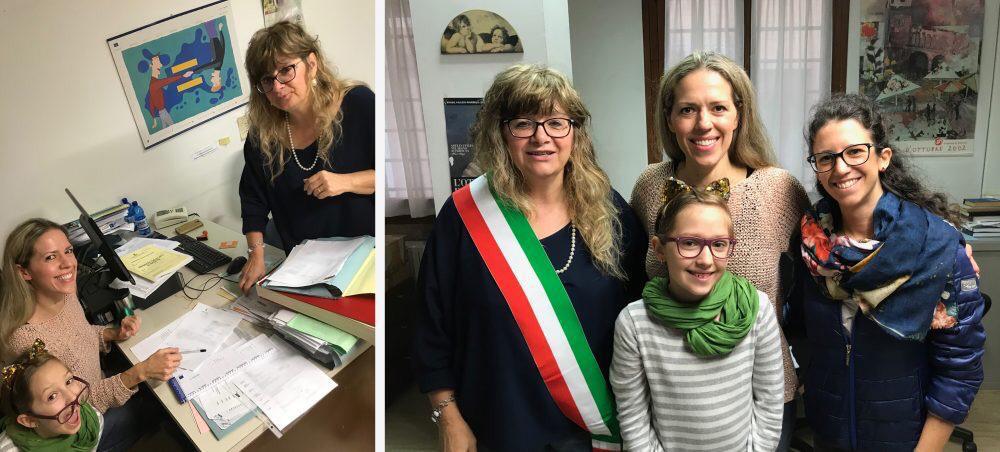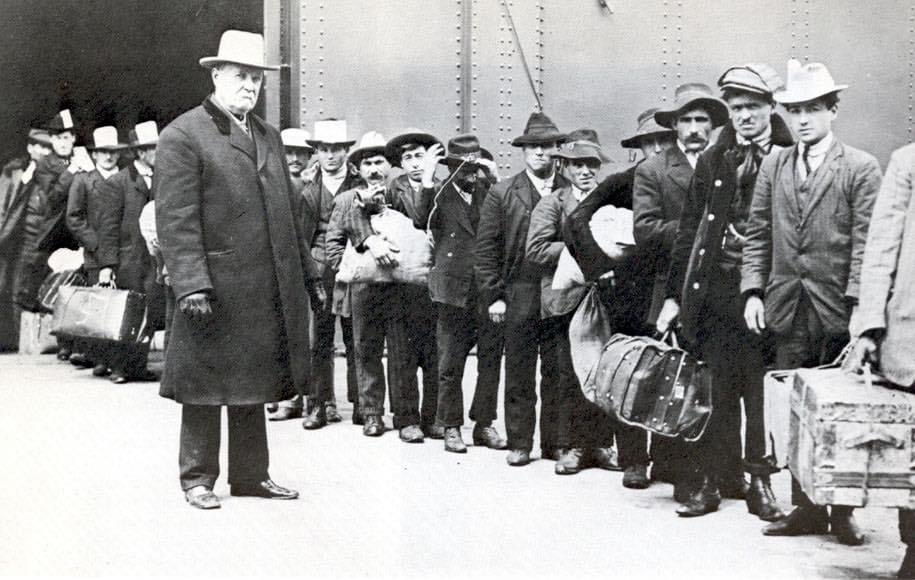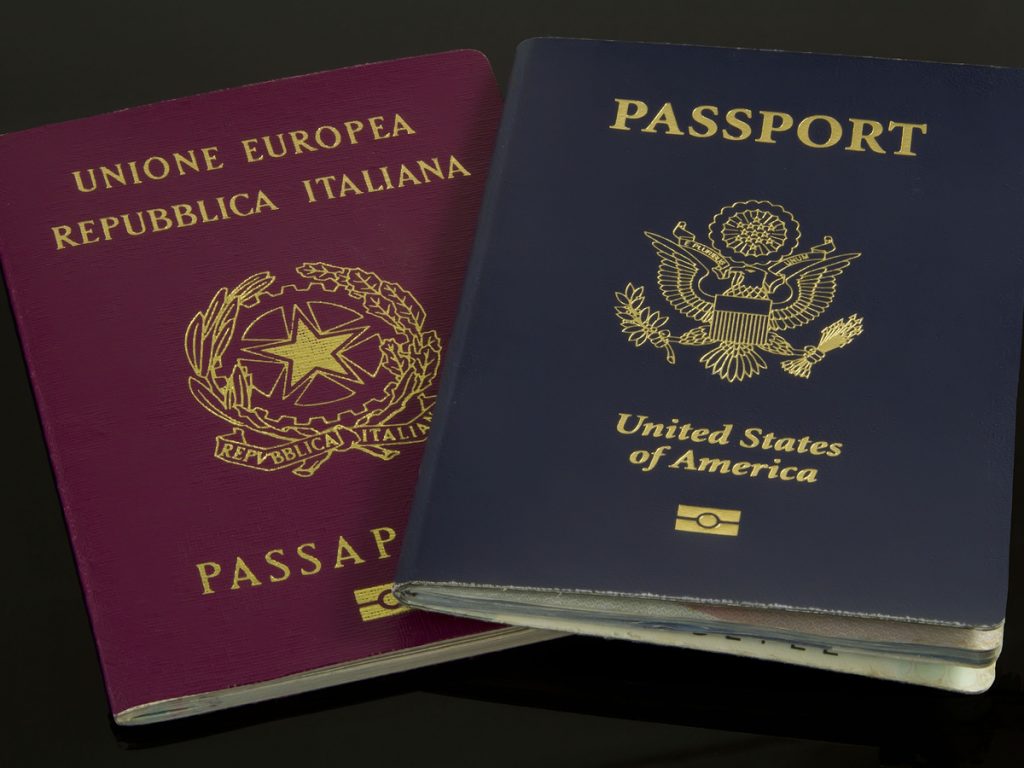Are you thinking about applying for Italian dual citizenship by descent (Jure Sanguinis), marriage (Jure matrimonii), or residency? Live in Italy Magazine is pleased to have talked with Marco Permunian, founder of Italian Citizenship Assistance. The company is located in both Italy and the United States. Here is a synopsis of our discussion below, Be sure to watch the full interview on our YouTube channel.
We have had quite a few inquiries about this subject and hope you find our discussion useful. Be sure to let us know in a comment below the article, on YouTube or our other social media @LiveinItalyMag.

Who is Marco Permunian?
My name is Marco. I am an Italian attorney registered with the Italian Bar. I would say that we are the largest firm that deals with Italian dual citizenship for Americans. We have offices in Los Angeles, New York and Italy. We help people apply for Italian citizenship primarily by descent. Italian Citizenship Assistance also helps people with their applications for Italian citizenship through marriage and through residency.
I started this business between 2010-2011 because of my adopted sister who is from Lithuania. I had the pleasure to work on her Italian citizenship application when she was still a minor.
Describe the services that Italian Citizenship Assistance offers.

We help people apply primarily for Italian citizenship by descent. They are people who live in the US, but have Italian ancestors. They may qualify if they meet the requirements. So, we help them navigate the process which is not easy. It is quite difficult, time consuming and takes long. We help them with the procurement of all the documents needed from both countries and help translate and legalize them. Our firm also submits them to the Italian Consulate. The process is faster if they do it in Italy.
We also help people who are applying through marriage: people who are married to Italian citizens born in Italy; or who became Italian citizens by descent. Their spouses are also eligible to apply. Living in Italy for the non-Italian spouse is not required. We help our clients collect all the appropriate documents and submit the application.
Finally, we help people apply for their citizenship through residency which means filing an application for citizenship based on your residency in Italy. Generally, people can apply after residing in Italy for ten years; four years if they are already a citizen of another EU country; or three years if they are of Italian descent, but don’t qualify for Italian citizenship by descent.
What is the criteria of descent and how far back does it have to be?

There is actually no generational limit so you can go back as far as you like. Normally our average client or the average American qualifies through an Italian great grandparent which is the late 1800’s and early 1900’s. Normally, the average American has an Italian born great grandparent, but we also assist people who have an Italian born great, great grandparent. There is no generational limit. The only requirement is that your last Italian born ancestor must have been still alive in 1861 when Italy was unified.
Is it guaranteed or automatic?
There are several requirements and we talked briefly about one, but there are other requirements. For example, your ancestor must not have naturalized prior to the next in line or prior to 1912. If you are using a female ancestor, the next person in the Italian line must have been born after January 1, 1948. So, there are several requirements and we do check the eligibility of all our clients before they even become full clients completely free of charge. So we offer complimentary eligibility assessment. If we determine that the person qualifies, we will assist them throughout the process.
99.9% of our clients do get their Italian citizenship if they do meet the eligibility requirements. Of course, it is possible that you encounter other issues along the way that prevent you from having a successful application. For example, if a document cannot be found or if there is mysterious name change by someone in your Italian line and records can’t be found. Although you meet the requirements, there may be challenges in gathering the necessary documents. But normally it is not too complicated a process and totally doable.
What if you are adopted?
Under Italian law, you qualify for citizenship if you were adopted as a minor.
Talk about Italian citizenship through marriage.
They qualify if they’ve been married to their Italian spouse for at least three years if they are residing abroad. If the couple is living in Italy, then after two years of marriage, the non-Italian spouse can apply for Italian citizenship through marriage. Also, the wait time from the date of the marriage is cut into half if the couple has minor children.
There is also a language requirement now only for people applying for citizenship through marriage and residency.
How long does it take for a resident to apply for citizenship?
In Italy, you can’t really buy your citizenship like you can do in other countries. You can relocate to Italy on a visa and after some time you can apply for Italian citizenship through residency if you meet the requirements. For example, after ten years in Italy; four years if you are a resident of another EU country; or three years if you are of Italian descent.
Name some of the benefits of Italian dual citizenship.

There are many benefits connected to Italian citizenship. I would say that one of the most important ones is the healthcare. The Italian healthcare system is completely free of charge for Italian citizens. So unlike the American system which is based on insurances and can be very expensive at times, our healthcare system is excellent.
A second benefit is the ability to move freely within the European Union, so if you become an Italian citizen, then you have the ability to relocate without the need for a visa. You can just decide to go and relocate immediately.
Other benefits would be lower tuitions and the ability to attend a European university or school without the need of a visa. In Europe, Italy has some of the best universities that are out there.
For someone who is not interested in school, but employed by a European company, it is easier to have access to employment opportunities within the European Union if you are a dual citizen.
Another benefit would be to transfer your Italian citizenship to your children indefinitely. If you go through the dual citizenship process and you are recognized as an Italian citizen, then it is a legacy for your children because any future children will become Italian citizens instantly at birth. They will not have to go through the process you went through.
Is there a time that one must work and live in Italy before moving and working to one of the Schengen states?
No, there is no such requirement. Of course, if we are talking about pensions, that would be the only aspect that is a little different. Italian citizens do get a pension when they get old, but only if they contribute during their life. So, you won’t get a pension if you’ve never worked in Italy. You may have access to other services, for example the government supports people with a very low income. As for the other benefits, there are no such requirements. For example, the healthcare system is free even if you were never a taxpayer in Italy.
Has there been a recent increase in interest for people wishing to acquire Italian citizenship?
In the past year and a half, we have seen an increasing number of applications, most likely due to some initiatives like the 1 Euro home programs. People have been encouraged to look more into Italian citizenship because they can then benefit more easily from these projects. There has also been a lot of media interest in Italy by the New York Times and CNN. Definitely 2020 was a very interesting year for Italian citizenship.
We mostly deal with Americans because we are also based in Los Angeles and New York. We do assist people in other countries like the UK, Australia and South Africa. But naturally we are contacted mostly by Americans because of our presence in the US.
How long does the process take?
It greatly depends on each situation. So, I would say it takes at least a few months to over a year. With the current situation (COVID), it takes slightly longer to get all of the documents to support the application. However, the process has not been slowed down too much because of the pandemic. The sooner that people start, the better. The situation in the US is very acceptable. However, there are longer processing times in South America — where even more people are interested in Italian citizenship by descent.
If you want a range, I will say that the average is 18 months. The process can be quicker if you relocate to Italy with the purpose of applying for citizenship. Then, they can bypass the Italian consulate in the US.
Explain your tier of services.
Most of our clients select our full package where we handle the whole process from beginning to end. This includes gathering all of the documents to legalizing them; booking the appointment with the consulate; and getting everything needed for the passport application.
We offer a second package which is called Step by Step. It is basically guidance for people who would rather do the process by themselves because they are passionate about it or have the time. However, they don’t necessarily have all of the knowledge and expertise.
Finally, we do help people who are halfway in the process and just need assistance with the final steps. We just help take them to the finish line.
How did the Italian Citizenship Podcast come about?

It started as a fun project with my friend Rafael (Di Furia). We first started talking about the process in general. Then, we realized that a lot of people were asking questions and commenting on our videos. We since started a full podcast where we talk about all the different situations related to Italian citizenship by descent, marriage and residency.
We’re looking forward to continuing this project for who knows how long?
Watch the full interview and be sure to like and subscribe!
Website
Facebook
Instagram
YouTube
Photos provided by Italian Citizenship Assistance
You may also enjoy reading…
Moving to Italy: Chat with Rafael Di Furia
Katie Palumbo Walks Us Through Healthcare in Italy
Moved to Italy During Lockdown



Are there any negative consequences of dual citizenship? Is one subject to taxation in both countries? I am asking for a neighbor whose daughter is trying to get dual citizenship in Lithuania so she can have opportunities to work in Europe. I am looking forward to your response.
Hi Lori! Thanks for reading the interview and for posting your question. We’ve alerted Italian Citizenship Assistance so one of their experts can repond. Thank you!
Hello! Obtaining Italian citizenship has no disadvantages or downsides.
Of course it’s always best to ensure your country allows dual/multiple citizenship (most countries do like Italy, the US etc).
Among the benefits are free or low cost high quality health care, low tuitions for high quality higher education, freedom of movement in the Eu, easier access to employment opportunities and the ability to transfer citizenship to children. As for taxation, Italy requires its citizens to pay taxes only if they reside in Italy for more than 183 days a year. Even when Italian taxes are due there are international treaties between countries to avoid double taxation (for instance between Italy and the US)
Hi my great grandfather was italian and married a South African woman. I know you are based in the United States. But is there a possibility you could help me? If not could you please direct me to any other companies you may know of who could?
Hi Carl! Thanks for your comment. We know that Italian Citizenship Assitance deals primarily with Americans who wish to apply for dual citizenship. However, you are the second request for information from a South AFrican. We’ll ask around and let you know.
I am looking forward tomove to Italy. I am already an Italian passport holder so I would like to consider the options.
That’s great news. Let us know how it goes and what region that you will settle in. 😍
Interested in Italian Dual Citizenship, I have the following Documents, both original and digital, for my mothers side of the family:
Grandfathers bitrthday date, city in italy
Grandfathers immigration information
Mothers birthday in USA 1925
Grandfathers Naturalization 1934
My birthday 1949
I have 2 children and one grandchild all over 18.
Other agencies have said I qualify
Do you have services you can provide?
Hello Dan, Thanks for your comment. Would you like us to send your email information to Marco of Italian Citizenship Assistance?
thanks for info
We’re glad it was helpful. Thanks Liana for reading Live in Italy Magazine.
thanks for info.